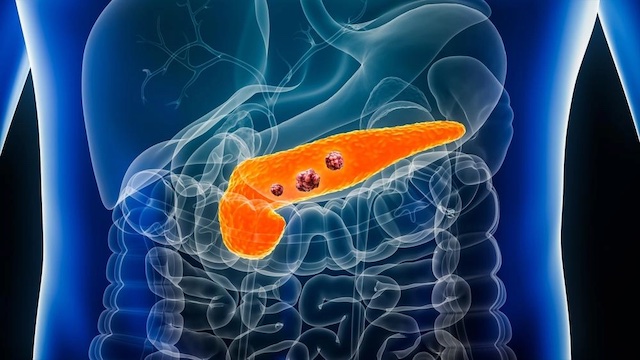 Pancreatic cancer is one of the deadliest forms of cancer, with a five-year survival rate of less than 10%. Often called a “silent killer,” it typically shows few early symptoms, making it challenging to detect until it has reached an advanced stage.
Pancreatic cancer is one of the deadliest forms of cancer, with a five-year survival rate of less than 10%. Often called a “silent killer,” it typically shows few early symptoms, making it challenging to detect until it has reached an advanced stage.
According to the American Cancer Society, over 62,000 new cases of pancreatic cancer were diagnosed in the United States in 2024, with nearly 50,000 deaths.
This article identifies 10 symptoms of pancreatic cancer that Americans frequently overlook and provides direct links to authoritative sources for more detailed information. Understanding these signs can help raise awareness and potentially lead to earlier diagnosis.
1. Unexplained Weight Loss
One of the first signs of pancreatic cancer is sudden, unexplained weight loss. This can occur because the cancer impacts the body’s ability to digest nutrients, leading to malnutrition. The Mayo Clinic highlights that unexpected weight loss should always be investigated, especially if it happens alongside other symptoms like fatigue or changes in appetite.
2. Yellowing of the Skin and Eyes (Jaundice)
Jaundice, characterized by yellowing of the skin and eyes, is a common symptom of pancreatic cancer, particularly if the tumor obstructs the bile duct. The American Cancer Society warns that jaundice may develop without accompanying pain, making it easy to overlook.
3. Dark Urine
Dark urine is another indicator of jaundice and can be an early sign of pancreatic cancer. According to Johns Hopkins Medicine, dark urine occurs when excess bilirubin, a substance produced by the liver, builds up in the blood.
4. Light-Colored or Greasy Stools
Pancreatic cancer can block the bile duct, preventing bile from reaching the intestines. As a result, stool may appear light-colored or greasy. The American Cancer Society states that this symptom, often ignored, can be a warning sign of cancer-related digestive issues.
5. New-Onset Diabetes
Pancreatic cancer can interfere with the pancreas’s ability to produce insulin, leading to new-onset diabetes. This is particularly concerning when diabetes develops suddenly in a person who does not have other risk factors. The CDC advises individuals to monitor blood sugar levels and seek evaluation if there are unexpected changes.
6. Abdominal or Back Pain
Persistent abdominal or back pain is a common symptom that many people attribute to muscle strain or gastrointestinal issues. The pain often occurs when the tumor presses on surrounding organs or nerves. The Cleveland Clinic recommends paying close attention to this type of pain, especially if it worsens over time.
7. Loss of Appetite
Loss of appetite can be an early sign of pancreatic cancer, as the tumor may disrupt the digestive process. According to the American Society of Clinical Oncology (ASCO), many people with pancreatic cancer report feeling full quickly or losing interest in eating altogether.
8. Nausea and Vomiting
Nausea and vomiting can result when a pancreatic tumor presses against the stomach, causing blockages. The Pancreatic Cancer Action Network notes that this is a symptom that people often dismiss as a minor stomach issue, but it could be a sign of a more serious underlying condition.
9. Enlarged Gallbladder or Liver
In some cases, a pancreatic tumor may cause the gallbladder or liver to become enlarged. This may be detected through imaging tests or felt as a mass under the right side of the ribcage. The American Gastroenterological Association advises seeking medical evaluation for any unusual masses or swelling.
10. Fatigue
Fatigue is a common, non-specific symptom of many health conditions, but it can also be a sign of pancreatic cancer. The American Cancer Society suggests that fatigue accompanied by other symptoms, such as unexplained weight loss or abdominal pain, should be promptly evaluated.
Conclusion
Pancreatic cancer is often diagnosed at a late stage because its symptoms are subtle and easily overlooked. Recognizing these warning signs and seeking medical advice when they occur could help with early detection and improve outcomes. If you or a loved one experience any of these symptoms, consult a healthcare provider immediately. By staying vigilant and informed, individuals can improve their chances of catching this aggressive cancer early on.
Written by Robin Jaffin for NewsBreak ~ December 14, 2024
